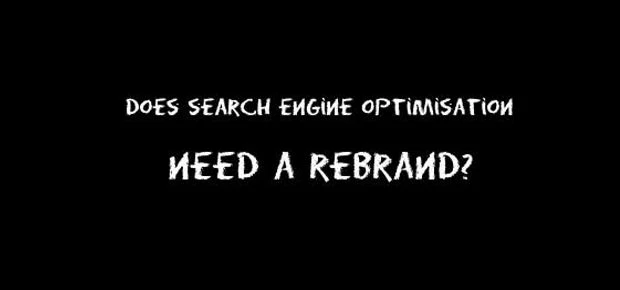
Partner Article
Does search engine optimisation need a rebrand?
Search engine optimisation (SEO) has been around since the first major mid-nineties search engines ? Excite, Lycos, AltaVista and the like ? began cataloguing the rapidly growing collection of webpages that make up the Internet.
Since then Google, a relative latecomer founded in 1998, has come to dominate the sphere of Internet search, and the efforts of SEO professionals the world over. So when one of Google?s leading figures, Matt Cutts, opens his mouth and suggests that the term itself isn?t really relevant anymore, people tend to pay attention.
Cutts was responding to the question ?Do you think that Search Engine Optimisation should be renamed?? on the GoogleWebmasterHelp YouTube channel. He says: ?A lot of the time when you hear ?SEO? a lot of people get this very narrow blinder on and they start thinking ?link building?? I think that limits the field and limits your imagination a little bit.?
He goes on to say: ?You could think of not search engine optimisation but search experience optimisation? once [users] land do they convert well? Are they happy, do they want to bookmark [your site]/ tell their friends about it??
SEO ? Search experience optimisation?
With search engine optimisation now such a ubiquitous term, it seems unlikely that any alternative terminology is going to take hold any time soon. But Cutts? suggestion of ?search experience optimisation? is certainly apt for the array of optimisation activities carried out by webmasters and SEO agencies. Whereas the former suggests that all efforts are being carried out for the benefit of the search engine itself, the latter indicates rightly that it?s all done for the user and their experience of the site.
Focusing on the user instead of the search engine is the only real workable strategy these days. Firstly because Google and other search engines have really made it par for the course, by constantly honing their algorithms to favour those sites that are the most user-friendly and accessible.
Secondly, and more importantly, it makes good business sense to focus on user experience. Because the more you tweak and craft your site so that is appealing, functional and intuitive to users, the more likely they are to use your services and to keep coming back for more.
Whatever your views on the re-brandingof the term search engine optimisation, you can have your say and join thousands of others in on the discussion on the GoogleWebmasterHelp YouTube channel.
This was posted in Bdaily's Members' News section by Jon Celeste .
Enjoy the read? Get Bdaily delivered.
Sign up to receive our daily bulletin, sent to your inbox, for free.








 Raising the bar to boost North East growth
Raising the bar to boost North East growth
 Navigating the messy middle of business growth
Navigating the messy middle of business growth
 We must make it easier to hire young people
We must make it easier to hire young people
 Why community-based care is key to NHS' future
Why community-based care is key to NHS' future
 Culture, confidence and creativity in the North East
Culture, confidence and creativity in the North East
 Putting in the groundwork to boost skills
Putting in the groundwork to boost skills
 £100,000 milestone drives forward STEM work
£100,000 milestone drives forward STEM work
 Restoring confidence for the economic road ahead
Restoring confidence for the economic road ahead
 Ready to scale? Buy-and-build offers opportunity
Ready to scale? Buy-and-build offers opportunity
 When will our regional economy grow?
When will our regional economy grow?
 Creating a thriving North East construction sector
Creating a thriving North East construction sector
 Why investors are still backing the North East
Why investors are still backing the North East